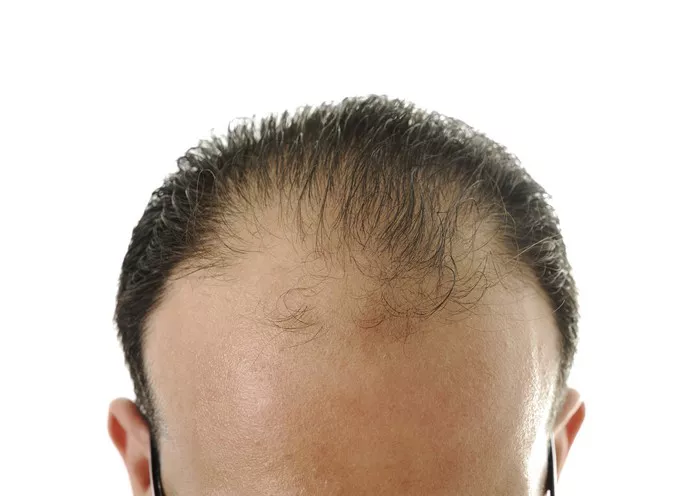Hair health is a subject of great interest and concern for many individuals. The lusciousness and vitality of one’s hair are often seen as indicators of overall health and attractiveness. While various factors influence hair growth and quality, ferritin levels have gained attention for their potential impact on hair health. Ferritin, a protein that stores iron in the body, plays a crucial role in several physiological processes, including hair growth. In this comprehensive guide, we delve into the significance of ferritin levels in relation to hair growth, explore optimal ferritin levels, and discuss strategies to maintain healthy hair through ferritin management.
Understanding Ferritin and Its Role in Hair Growth
Ferritin serves as a reservoir for iron, a mineral essential for numerous biological functions, including the formation of red blood cells and the transportation of oxygen. Iron deficiency, a condition characterized by low levels of iron in the body, can lead to various health problems, including hair loss or thinning. Ferritin levels are often used as a marker to assess iron stores in the body, as ferritin reflects the amount of iron stored in tissues.
The relationship between ferritin levels and hair growth lies in the role of iron in the hair follicle cycle. The hair follicle, the structure from which hair grows, undergoes a continuous cycle of growth (anagen), regression (catagen), and rest (telogen). Iron is crucial for the proliferation of cells in the hair follicle matrix and the synthesis of DNA, both of which are essential for hair growth. Insufficient iron availability can disrupt this process, leading to decreased hair growth and even hair loss.
Determining Optimal Ferritin Levels for Hair Health
While ferritin levels vary among individuals and can be influenced by factors such as age, gender, and overall health, there are general guidelines for optimal ferritin levels that support healthy hair growth. However, it’s essential to note that optimal levels may differ depending on the specific reference range used by laboratories. Generally, ferritin levels below 30 nanograms per milliliter (ng/mL) are considered indicative of iron deficiency, while levels above 70 ng/mL are often associated with optimal iron stores.
For individuals experiencing hair loss or thinning, healthcare providers may recommend ferritin levels at the higher end of the normal range, typically between 70 and 100 ng/mL, to support optimal hair growth. However, it’s crucial to interpret ferritin levels in conjunction with other indicators of iron status, such as serum iron, transferrin saturation, and total iron-binding capacity, to gain a comprehensive understanding of iron metabolism.
Assessing Ferritin Levels and Hair Health
Determining ferritin levels and assessing their impact on hair health involves a multifaceted approach that integrates clinical evaluation, laboratory testing, and consideration of individual factors. When evaluating hair loss or thinning, healthcare providers may conduct a thorough medical history, physical examination, and laboratory tests, including ferritin levels, to identify underlying causes and develop an appropriate treatment plan.
In addition to ferritin levels, other factors that can affect hair health should be considered, such as thyroid function, hormonal balance, nutritional status, and genetics. Conditions such as hypothyroidism, hormonal imbalances (e.g., androgenetic alopecia), nutritional deficiencies (e.g., vitamin D, biotin), and autoimmune disorders can contribute to hair loss or thinning and may necessitate targeted interventions beyond iron supplementation.
Strategies to Maintain Healthy Ferritin Levels and Promote Hair Growth
Maintaining optimal ferritin levels is essential for supporting healthy hair growth and preventing hair loss or thinning. Several strategies can help achieve and sustain adequate iron stores in the body:
1. Balanced Diet: Consuming a well-rounded diet rich in iron-containing foods, such as lean meats, poultry, fish, legumes, nuts, seeds, and leafy green vegetables, can provide the necessary iron for hair growth. Pairing iron-rich foods with sources of vitamin C, such as citrus fruits or bell peppers, can enhance iron absorption.
2. Supplementation: In cases of confirmed iron deficiency or inadequate ferritin levels, healthcare providers may recommend iron supplementation to replenish iron stores and support hair growth. Iron supplements should be taken as directed and under medical supervision to avoid potential side effects or interactions with other medications.
3. Limiting Factors that Impair Iron Absorption: Certain substances can inhibit iron absorption, such as phytates (found in whole grains and legumes), tannins (found in tea and coffee), and calcium (found in dairy products). Limiting the consumption of these substances or consuming them separately from iron-rich foods or supplements can help optimize iron absorption.
4. Managing Underlying Health Conditions: Addressing underlying health conditions that may contribute to iron deficiency or hair loss, such as thyroid disorders or autoimmune diseases, is crucial for promoting overall well-being and hair health. Healthcare providers can develop personalized treatment plans to manage these conditions effectively.
5. Regular Monitoring: Periodic monitoring of ferritin levels and overall iron status is essential, especially for individuals at risk of iron deficiency or those experiencing hair-related concerns. Regular follow-up appointments with healthcare providers allow for adjustments to treatment plans based on changes in ferritin levels and response to interventions.
Conclusion
Ferritin levels play a significant role in supporting healthy hair growth, with optimal levels associated with improved hair quality and reduced risk of hair loss or thinning. Understanding the relationship between ferritin and hair health enables individuals to take proactive steps to maintain adequate iron stores and promote optimal hair growth. By adopting a balanced diet, considering supplementation when necessary, and addressing underlying health conditions, individuals can support their ferritin levels and enjoy vibrant, resilient hair. Prioritizing ferritin management as part of a comprehensive approach to hair care empowers individuals to nurture their hair from within, enhancing not only its appearance but also overall well-being and confidence.


